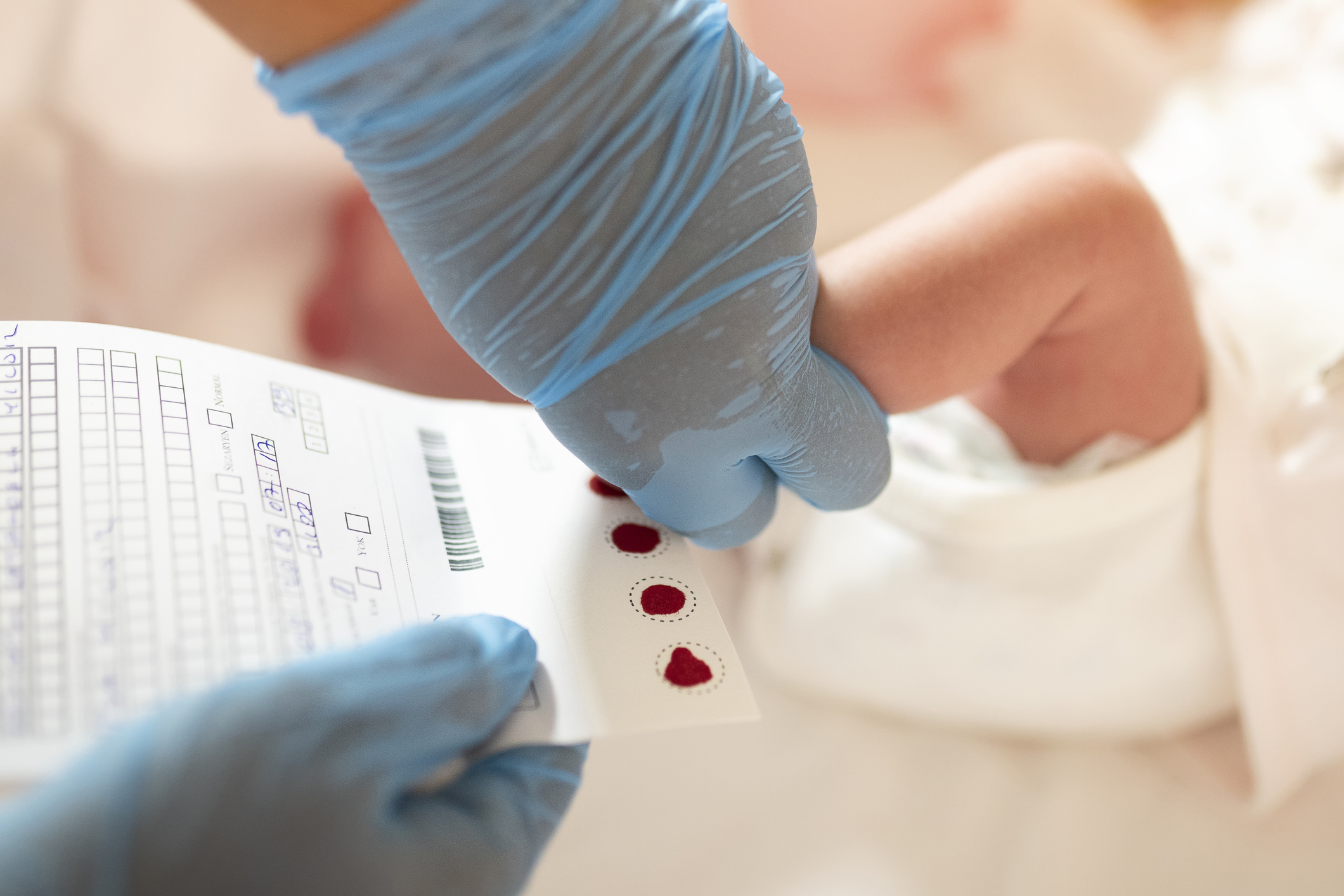Blood
Civil rights concerns grow over baby blood tests, as state mulls genomic sequencing
New Jersey health officials will consider using a controversial new technology to test babies for disease, under the state’s mandatory newborn screening program.
The technology, known as genomic sequencing, would document all of a baby’s DNA, allowing doctors to diagnose far more disorders than the 61 diseases now screened in New Jersey. Critics say the technology threatens genetic privacy.
At their biannual meeting Tuesday, members of the state Department of Health’s newborn screening advisory review committee listened to a presentation on genomic sequencing and agreed to form a committee to plot its possible role in detecting disease in the 100,000-plus infants born each year in New Jersey.
“This is going to be an ongoing conversation on how this fits in with newborn screening. My personal opinion is that this is not going to replace the phenotypic newborn screening that we are currently doing, at least not as it stands now,” said Miriam Schachter, program manager of the state’s Newborn Screening Laboratory. “I definitely see a place for this together with newborn screening.”
The move sparked alarm Tuesday among critics of the newborn screening program, which has been the target of two lawsuits in the past year over its secretive policy of retaining babies’ dried blood samples, known as blood spots, for 23 years for uses officials refuse to disclose.
“As technology improves and the more data they can mine from the blood, that just creates more and more ways for this blood to be used in different abusive ways or to come back and hurt the kids,” said Brian Morris, an attorney with the Institute for Justice.
The nonprofit, Virginia-based institute filed a class-action lawsuit earlier this month against the state of New Jersey earlier this month in an effort to stop its practice of retaining millions of baby blood spots in a laboratory for 23 years for unknown uses, without informing parents or obtaining their consent.
The state Office of the Public Defender, along with the New Jersey Monitor, also sued the state in July 2022 after discovering state police used a stored blood spot to arrest the child’s father with a crime. That public records lawsuit aimed to uncover which law enforcement agencies had retrieved blood spots to investigate crimes instead of getting warrants to get a suspect’s DNA directly, as law requires.
Attorney CJ Griffin represented the office and Monitor in the public records case and is local counsel on the institute’s lawsuit. She said parents who learn about the lawsuits contact her every day, angry about the state’s secret storage of blood spots and their undisclosed uses.
“It’s alarming that they’re talking about expanding the program rather than talking about backing up and getting consent from parents for what they’re already doing without people knowing,” Griffin said.
The American Civil Liberties Union also has voiced objections to expanding newborn screening programs to include genomic sequencing.
‘A lot of ethical issues to solve’
On Tuesday, committee members didn’t address the lawsuits or the civil rights objections to their covert collection of baby blood spots.
Instead, they heard several reports on various diseases, an update on work to improve educational handouts about the program, and pleas from three members of the public about adding certain diseases to the list of those already screened and translating educational handouts in more foreign languages.
They also heard from Dr. Thomas Westover, a committee member and obstetrician-gynecologist at Capital Health.
Westover gave a short presentation about genomic sequencing and its possibilities to improve disease detection in newborns — the topic both of an international consortium’s annual conference last month and an investigation published in September in the Journal of the American Medical Association.
“There’s just a lot of movement forward on this,” Westover said. “The science always moves faster than the ethics and professional society guidelines … it’s going to be kind of an exciting but slightly scary and logistical — there’ll be a lot of questions about logistical operations.”
Committee members began mulling those questions at their meeting, including whether genomic sequencing would be covered by insurance — and if not, whether that would create health inequities.
Dr. Debra Day-Salvatore, a committee member and geneticist at St. Peter’s University Hospital, agreed the technology presented “a lot of positives” but also “a lot of ethical issues to solve,” including the need to obtain informed consent.
The committee should act quickly to examine the issue, because commercial companies already offer genomic sequencing, and legislators could act to establish guardrails around its use, she added.
“Some of this may be taken out of our hands, and then we’ll be left to try and sort through it,” she said. “I do think we’re moving in that direction, and hopefully we’ll be able to come up with some good guidelines going forward.”
Morris, who also tuned in to the virtual meeting, told the New Jersey Monitor the committee instead should stick with establishing good guidelines to protect parents and babies from government overreach and privacy intrusions.
Beyond the privacy implications of genomic sequencing, Morris said he was also concerned about the committee’s announcement that it received funding to set up electronic communications between the screening laboratory and the state’s 46 birthing hospitals.
“There’s no really statutory oversight, and it’s such a black box,” Morris said. “We don’t even know what security measures they have in place, how they’re storing this, if there’d be identifying things traceable to the kids, etcetera. With sequencing, you add even more data to what they’re storing. Every other week, we see a story about some major company or government organization being hacked and its data compromised. This data is much more sensitive than just your phone number and address.”
GET THE MORNING HEADLINES DELIVERED TO YOUR INBOX

